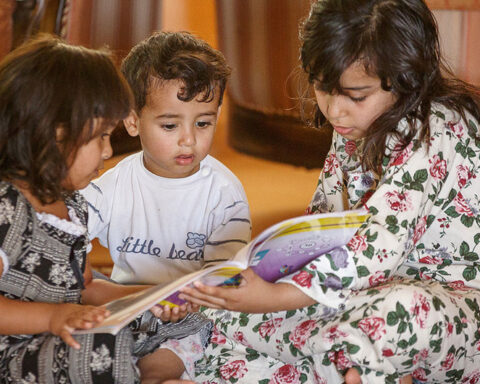“When tsunamis strike, they are a supreme test of the governance and institutions that have been put in place to manage disaster risk,” he said.
Strengthening disaster risk governance would help build our resilience to “all hazards, natural and man-made,” he stressed.
World Tsunami Awareness Day, marked annually on 5 November, commemorates the actions of a Japanese village leader, who on that day in 1854, recognized the signs of an approaching tsunami and set fire to his rice sheaves – an improvised but remarkably effective early warning system – saving the lives of the many villagers who saw the smoke and ran uphill to help put out the flames.
COVID-19 ‘tsunami’
Mr. Guterres also drew parallels between tsunamis and the coronavirus pandemic, in their impact on lives.
“We are struggling with what some describe as a tsunami of death and disease due to COVID-19,” he said, adding that the metaphor comes easily because living memory remains strong of the 2004 Indian Ocean tsunami, in which more than 227,000 people perished.
“Pandemic preparedness can borrow much from the progress we have made in reducing large-scale loss of life from tsunamis,” he added.
Mami Mizutori, Special Representative of the Secretary-General for Disaster Risk Reduction, echoed these words.
“What is true for this biological hazard is true for many other hazards man-made, natural and technological that are threatening our planet,” she said.
Getting the plans right
Ms. Mizutori, who also heads the UN Office for Disaster Risk Reduction (UNDRR), also emphasized the importance of disaster risk governance.
“Clear vision, guidance, coordination and competence are essential to the success of raising tsunami awareness around the world. Lives will be saved, injuries reduced, and economy spared if we get the planning right … Prevention saves lives,” she said.
Similarly, Audrey Azoulay, Director-General of UN Educational, Scientific and Cultural Organization (UNESCO), also called for continuous risk assessment and preparedness, especially given that the risks are compounded by the effects of climate change.
“Governments, partner organizations and civil society need to support and facilitate these crucial disaster reduction activities,” she added.
“Saving lives and protecting the livelihoods of communities at risk of tsunamis requires sustained investment in resilient infrastructure, early warning systems and education,” said Ms. Azoulay, stressing: “In this field especially, we need to build the future we want today.”
Helping communities globally
Around the world, UN works to raise awareness and educate the public, support policies, organize drills, create evacuation routes, and undertake several other activities to safeguard communities from tsunamis.
For instance in Asia and the Pacific, the UN regional commission, ESCAP, set up a trust fund for tsunami preparedness in the aftermath of the 2004 Indian Ocean tsunami. The initiative supported the establishment of the Indian Ocean Tsunami Warning System, and has expanded its scope to cover island nations in southwest Pacific.
Similarly, UNESCO’s Intergovernmental Oceanographic Commission has helped bolster tsunami preparedness in the Caribbean – another region that suffered devastating tsunamis – through better coordination, hazard assessment, warning communication, preparedness activities, response and resilience to tsunamis and other ocean hazards.
Also, this year, with COVID-19 bringing new and complex challenges to disaster preparedness and response, UNDRR along with the UN Development Programme (UNDP) published a guide for school administrators to help them implement tsunami evacuation centres, should the need arise.
The World Day
In December 2015, the UN General Assembly designated 5 November as World Tsunami Awareness Day, calling on all countries, international bodies and civil society to observe the day, to raise tsunami awareness and share innovative approaches to saving lives.
This year, the World Day promotes target E of the Sendai Seven Campaign, urging governments to develop and put in place national and local disaster risk reduction strategies, by the end of 2020.





